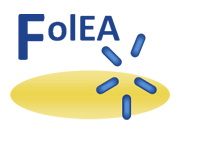This project is coordinated by IRD, Institut de Recherche pour le Développement
NUTRIPASS unit "Food and Nutrition Research in the Global South"
UMR Nutripass, 911 avenue Agropolis, BP 64501 34394 Montpellier Cedex, FRANCE
Christèle HUMBLOT , Coordinator
Tel : + 33 (0)4 67 41 62 48
Fax: + 33 (0)4 67 41 61 57
For the FolEA partners only: you can sign in to access the "private area", with more information on the project, and access to the documents.
A password is needed (contact Youna Hemery to get your login & password).
Work-package 1
WP1: Identification of the folate sources in African and European diets
Leader : Dr Kaleab Baye (Ethiopia)
Co-leaders : Dr Fatoumata Hama-Ba (Burkina-Faso) & Dr Edwige Landais (France)
The objective of this WP is to identify the contribution of cereal-based fermented foods (CBFF) to folate intakes in African and European populations (Burkina-Faso, Ethiopia, Finland, France and South-Africa). We will focus on our populations of interest, namely young children and women of childbearing age. First, we will identify potential sources of folates in the different diets, then we will estimate the contribution of cereals and CBFF to folate intakes. This work will be based on inventories studies as well as reanalyses of existing food consumption databases.
This WP is structured in three Tasks:
Task 1.1: Identification of existing data
The first months of the project will be dedicated to the identification and the inventory of existing food consumption databases (FCDB), i.e. databases obtained from previous dietary assessment surveys that were conducted amongst the target population.
Task 1.2: Completion of food composition databases
An inventory of existing food composition tables will be conducted. In each food composition tables and for each type of food the completeness for at least proximate analyses and folate will be checked. The presence, as well as the composition of CBFF will be sought in these tables. If information about nutrient contents or CBFF is missing, the next step will be to complete the food composition tables. Therefore, missing data will be either borrowed from others existing food composition tables, borrowed from relevant articles, or taken from the results of WP3 (analyses of the folate content of CBFF).
Task 1.3: Folate intakes and contribution of CBFF
The next step will be to re-analyse all food consumption databases available in each country in order to assess folate intakes for the target population, and to estimate the contribution to cereal-based fermented foods to folates intakes.
The expected results are the documents that will be produced (reports, publications). Their diffusion will point out the contribution of CBFF to folate intakes and help the decision-makers to define public nutrition programs.











